Bribery trial begins for ex-energy official
Updated: 2014-09-25 08:12
By An BaiJie and Cao Yin(China Daily USA)
|
||||||||
Prosecutors accuse Liu Tienan of abusing power and pocketing millions
China's anti-graft campaign in the energy and resource fields is to be enhanced, analysts said on Wednesday, as the trial of former senior energy official Liu Tienan began.
Liu, 60, is accused of taking bribes worth 35.5 million yuan ($5.8 million) from 2002 to 2012 when he was a department chief and later vice-minister of the National Development and Reform Commission.
The former tsar of China's energy industry, wearing a dark jacket typical of senior officials in the country, burst into tears when he made a statement at the court.
"When I woke up in the morning (after being arrested), I asked myself where I was and how I could be degraded like this?" he said. "It felt like having my soul whipped when I was interrogated."
In the anti-corruption campaign since the new Chinese leadership took power almost two years ago, more than 40 officials at minister level or above have been jailed or put under investigation for corruption. Among them were Zhou Yongkang, a former member of the Standing Committee of the Political Bureau of the Communist Party of China Central Committee, Bo Xilai, a former member of the 25-member Political Bureau of the Communist Party of China Central Committee, and his colleague Xu Caihou, a top military general.
The energy sector, one of the biggest and most profitable industries in China, has been a center of the anti-corruption campaign.
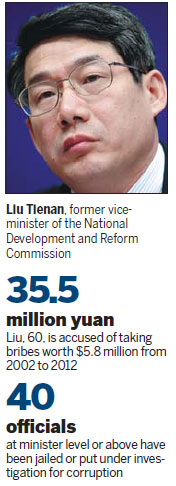
This year alone, at least 10 officials have been investigated in the national and local energy administrations and at least 12 top managers of State-owned energy companies were suspected of violations of Party discipline and law.
"If the central government doesn't rearrange resource allocation and adjust the personnel structure of State-owned enterprises in the industry, similar graft will not be rooted out," said Yang Weidong, a law professor at the Chinese Academy of Governance.
Wang Xixin, an administrative law professor at Peking University, said interest in the energy and resource field has stronger relations to administrative power, "which allows corruption to easily happen," he said.
"Each project in this field needs a huge amount of money, such as road construction, and it is always close to the public interest. But which company can bid and win the project depends more on administrative power," Wang said.
In the Liu Tienan case, some of the bribes were received through his son, Liu Decheng, prosecutors said. His son's case has been handled separately.
The court did not issue a verdict after the trial was ended on Wednesday afternoon.
According to the prosecutors, after receiving the bribes, Liu allegedly gave the green light to the companies that had projects to be approved by the NDRC.
In one of the cases, Qiu Jianlin, board chairman of Zhejiang Hengyi Group, allegedly gave 16.5 million yuan in bribes to Liu from June 2006 to August 2011, and in return Liu helped Qiu get approval for his company's chemical projects, said prosecutors.
The prosecutors claim that Liu accepted 40,000 yuan from Song Zuowen, board chairman of Nanshan Group, to help his company's product get approval from NDRC.
Liu said in court that he could not remember the bribery and the projects were "just too small" for him, a vice-minister of the NDRC, one of the most powerful ministries in China that approves projects like nuclear power plants and decides prices of commodities from electricity to pork.
Liu was exposed by Luo Changping, a senior editor of Caijing magazine, in December 2012. Luo publicized whistle-blowing material on his micro blog, accusing Liu, then head of the National Energy Administration, of counterfeiting an academic degree, getting fraudulent loans and threatening his alleged mistress.
Tidbits
Liu Tienan
Liu was the first official at the provincial or ministerial level to be dismissed after the 18th National Congress of the Communist Party of China. He was exposed online by journalist Luo Changping in December 2012. Liu, the former deputy director of the National Development and Reform Commission and former chief of the National Energy Administration, was reported to be under investigation in May 2013 and was dismissed in August 2013.
Transfer for trial
Liu's trial opened on Wednesday at the Langfang Intermediate People's Court in Hebei province. According to Legal Daily, many senior officials have been tried in places other than the place where an alleged offense was committed. These include Bo Xilai, who was transferred to Jinan, Shandong province, as former head of Chongqing; and Chen Liangyu, who was transferred to Tianjin as former head of Shanghai. Location changes help ensure that defendants obtain fair and impartial trials, the Supreme People's Court said.
The procuratorate
Langfang people's procuratorate filed the charge against Liu on Wednesday. According to its website, the procuratorate was founded in March 1951 and changed to its current name in 1989. It is known for filing charges against Liu Qingshan and Zhang Zishan, who were executed in 1952 after what is known as the first anti-corruption trial in the People's Republic of China.
Contact the writer at anbaijie@chinadaily.com.cn
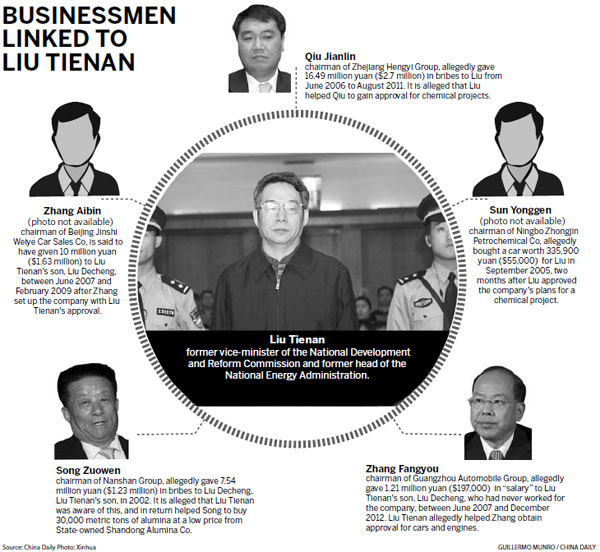
(China Daily USA 09/25/2014 page1)
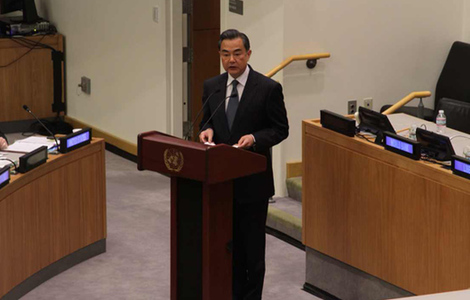
 UN high-level meeting on Ebola
UN high-level meeting on Ebola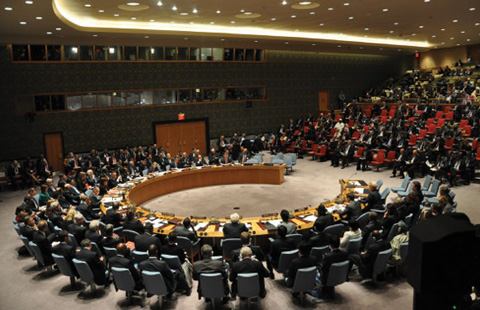
 FM calls for new steps in fight against terror
FM calls for new steps in fight against terror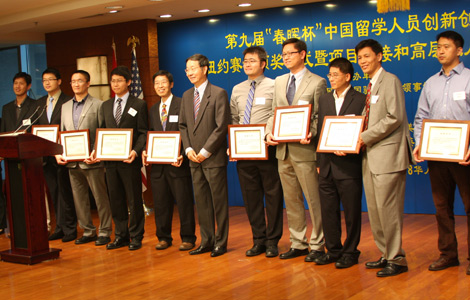
 Chunhui Cup takes on China's 'brain drain'
Chunhui Cup takes on China's 'brain drain'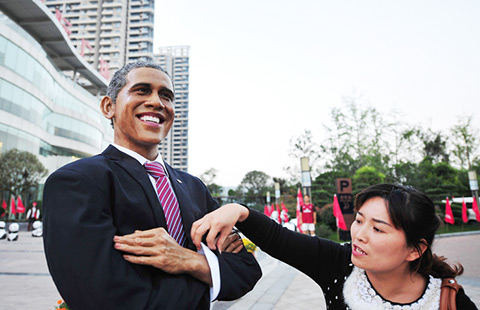
 Celebrity sculptures become property ambassadors
Celebrity sculptures become property ambassadors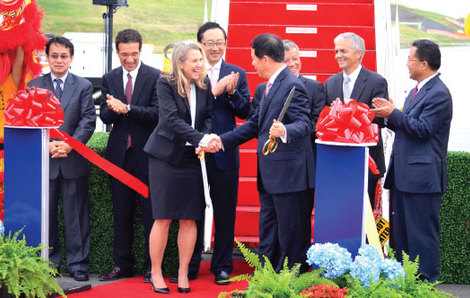
 China Eastern gets 1st B777
China Eastern gets 1st B777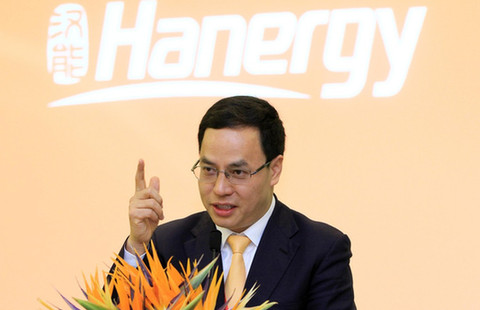
 Top 10 richest individuals in China
Top 10 richest individuals in China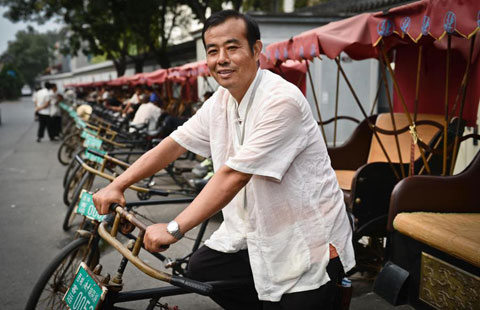
 Rickshaw driver's regular day in Beijing
Rickshaw driver's regular day in Beijing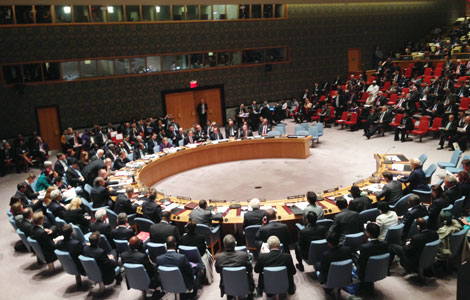
 UNSC passes anti-terror resolution
UNSC passes anti-terror resolution
Most Viewed
Editor's Picks

|

|

|

|

|

|
Today's Top News
Joint institute will take on water pollution
Experts are cautious on Modi's US trip
China, Spain to ink $4b deals
PLA vows to root out abuse of power
Bribery trial begins for ex-energy official
China to send 700 peacekeepers to South Sudan
China's FM calls for anti-terror 'new thinking'
Express delivery sector opens up
US Weekly

|

|







